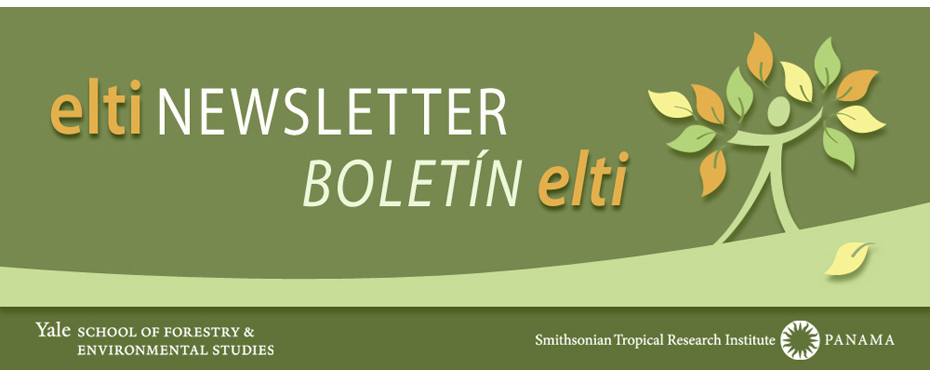As part of their outreach and communications strategy, last week the board members of APASPE gave a talk to explain their current work on silvopastoral systems in Los Asientos. The Azuero Earth Project hosted the talk, as part of their efforts to disseminate information about ongoing
Thursday, December 15, 2011
Saturday, December 10, 2011
Latest workshop for APASPE members in Los Asientos, Panama
Since June 2010, the Asociación de Productores Pecuarios y Agrosilvopastoriles de Pedasí (APASPE) has been implementing a small silvopastoral and reforestation project in Panama's Azuero Pensinsula. The project is funded through GEF's Small Grants Programme (SGP), and has
Tuesday, October 18, 2011
ELTI takes part in the UNFCCC Climate Change Conference – Panama
On October 1-7, the United Nations Framework Convention on Climate Change (UNFCCC) held its inter-sessional meeting in Panama as a precursor to the 17th Conference of the Parties (COP 17), scheduled to take place in December in Durban, South Africa. More than 3000 country delegates
Sunday, October 16, 2011
Forest Restoration Conference in Indonesia
Indonesia has tens of millions of hectares of degraded land resulting from unsustainable land-use practices including logging, agricultural conversion, mining, infrastructure development, and fires. As a consequence, vast areas have experienced the loss of biological diversity and
Friday, September 9, 2011
First Meeting of the Conflict Resolution and REDD+ Council – June 22
The mechanism known as Reducing Emissions from Deforestation and Forest Degradation (REDD+) has generated optimism among those dedicated to climate change mitigation, forest conservation and rural poverty alleviation. However, REDD+ has also ignited heated debates and outright
Thursday, September 8, 2011
REDD+ Workshop in the Ngäbe-Buglé Comarca, Panama - August 2011
More than half of Panama’s remaining mature forests are located within indigenous territories, both formally recognized and under claim. These forests, along with secondary-growth forests, contribute to mitigating climate change by sequestering heat-trapping carbon dioxide (CO2). As
Local Farmers Associations in Panama’s Azuero Peninsula Launch Silvopastoral Projects
The Azuero Peninsula in southwestern Panama has a long history of colonization, particularly in the low-lying areas on the eastern flank of the peninsula, also known as the “dry arc” (Arco Seco). What once used to be tropical dry forest, has now been converted to vast expanses of agricultural
Wednesday, September 7, 2011
First Workshop on Connectivity Corridors in Cattle Ranching Landscapes in Colombia – May 2011
‘Rainforestation’ Training for Watershed Managers – May 2011
Deforestation and forest degradation can lead to the loss of key watershed functions such as water supply and quality for human consumption, agricultural production and hydropower generation, as well as slope stabilization and drainage. The Philippines has suffered from massive
Tuesday, September 6, 2011
‘Rainforestation’ Research & Monitoring Training – April 2011
Workshop on REDD+ and Conflict Resolution Techniques – May 2011
Thursday, September 1, 2011
ELTI Leader: Ana María Martínez
Name: Ana María Martínez
Organization: National Land Management Authority (ANATI) – Ministry of Housing and Land Use Planning (MIVIOT)
Position: Director – Department of Land-use Planning
ELTI Event: Towards Sustainable Landscapes in the Neotropics: Land Use Planning for People and Nature, March 2008, Bocas del Toro, Panama
Organization: National Land Management Authority (ANATI) – Ministry of Housing and Land Use Planning (MIVIOT)
Position: Director – Department of Land-use Planning
ELTI Event: Towards Sustainable Landscapes in the Neotropics: Land Use Planning for People and Nature, March 2008, Bocas del Toro, Panama
Subscribe to:
Posts (Atom)
